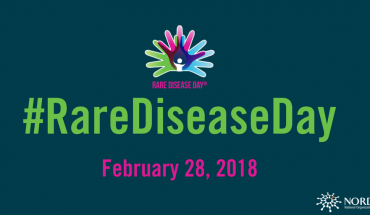Influenza pandemics cause a persistent increase in influenza mortality risk, lasting around two decades, according to new research analysing historical data from the 19th and 20th centuries.
The latest study – which is led by researchers at the University of Glasgow, and including academics at Lancaster University – reveals new and important findings about the persistent health impacts of flu pandemics beyond the main waves of infection. The study is funded by the Economic and Social Research Council (ESRC) and is published in Social Science and Medicine.
In particular, the research found that the main influenza pandemic waves were always followed by multiple sizeable flu outbreaks, in some cases doubling the death toll of the pandemic over the following decade. In addition, the study also found that for almost two decades after an influenza pandemic there remained a high risk that any flu outbreak could cause as many as a third of the deaths of the main wave.
Studying data from eight large cities in the UK during the ten years following the 1918-19 global flu pandemic, the researchers were able to show that multiple recurrent influenza outbreaks from 1920-29 resulted in nearly as many deaths as the main waves. It was a pattern they were able to confirm using data for the same period in the US, alongside further data for multiple influenza pandemics during the period 1838-2000 in England and Wales.
Taking a closer look at the deaths caused by influenza at both a country and city level in the UK, the research team were able to demonstrate the increased death toll from flu lasted almost two decades after a pandemic initially hit.
Studying records from individual cities (Belfast, Birmingham, Cardiff, Glasgow, Liverpool, London, Manchester and Sheffield) following the 1918-19 pandemic, researchers were able to show that the size of subsequent flu outbreaks was considerable – some outbreaks reaching a mortality rate of around 500-1000 per million for individual areas. The three cities which had comparatively low main pandemic wave mortality (Liverpool, Glasgow and Birmingham) experienced very large recurrent outbreaks over the next two decades, some causing as many as around a third of the number of deaths as the main wave.
Dr Rebecca Mancy, Research Fellow at the University of Glasgow’s MRC/CSO Social and Public Health Sciences Unit, said: “Our research shows that the impacts of flu pandemics did not end once the main waves of infection subsided. Indeed, data from the UK and the US showed an unusually high risk of death from flu as much as two decades later. As a result, we believe omitting the effects from recurrent post-pandemic outbreaks substantially underestimates the impact of any one flu pandemic.
“Whether the patterns seen for historical flu pandemics might apply for COVID-19 and other future pandemics depends on a number of factors. We now have much more advanced public health systems and medicine including the ability to rapidly develop vaccines, as well as institutional organisation, including test-and-trace systems – all factors that may impact the wider effects of a pandemic.”
Dr Spyridon Lazarakis, from Lancaster University Management School, added: “We believe that these new findings suggest we should now view pandemics and their overall health impacts differently – looking beyond the initial main waves.”
The study, ‘An extended period of elevated influenza mortality risk follows the main waves of influenza pandemics’ is published in Social Science and Medicine. The work was supported by a grant that is funded by the Economic and Social Research Council (ESRC) as part of UK Research and Innovation’s rapid response to COVID-19, The Leckie Fellowship, the Medical Research Council and the Scottish Government Chief Scientist Office.
- Gut microbiome could delay onset of type 1 diabetes - 3rd April 2025
- The da Vinci 5 Robot Is Set To Transform Bariatric Care: - 31st March 2025
- Beyond money: the hidden drivers fuelling child food insecurity - 31st March 2025





